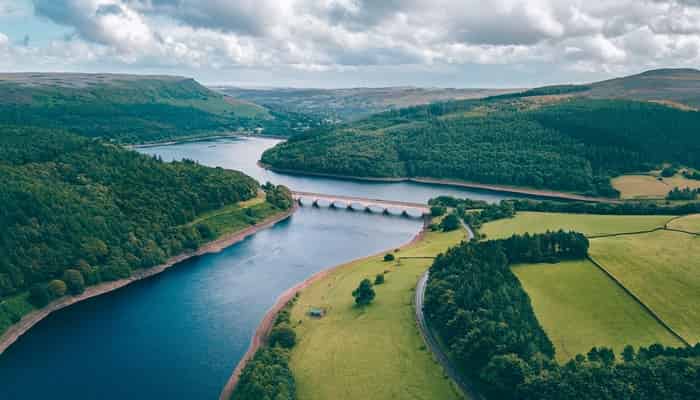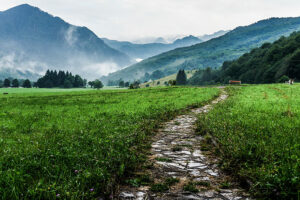IELTS Speaking Part 2: IELTS Cue Card
Talk about an important river or lake in your country or hometown.
You should say:
What it is?
How has it changed people’s lives?
What benefits did it bring?
And explain if it is more important for older or younger people.
Note: You will have to talk about the topic for one to two minutes. You have one minute to think about what you are going to say. You can make some notes to help you if you wish.
Model Answer 1:
Introduction:
Different sectors use water for different purposes such as irrigation, factories, and drinking. Without water we can’t imagine our life. Today I would like to talk about one of the famous rivers of Punjab.
What it is? and How has it changed people’s lives?
The Sutlej or Satluj River is the longest of the five rivers that flow through the historic crossroads region of Punjab in northern India and Pakistan.
The Bhakra Dam is built around the river Sutlej to provide irrigation and other facilities to the states of Punjab, Rajasthan and Haryana that have changed millions of people’s lives.
What benefits did it bring?
It will irrigate an area of 4.46 lakh ha. in Haryana and also benefit Punjab in terms of irrigation to an area of 1.28 lakh ha. and in terms of power, a total of 50 MW of power generation at two powerhouses.
Many people are dependent upon it for their livelihood. The farmers use its water for agriculture, and people also do fishing in this river.
Explain if it is more important for older or younger people.
Food and water are two basic needs for any generation. As we know methods of using water is changed but it is still important for both older adults and youngsters.
Model Answer 2:
Introduction:
- India is a diverse country.
- There are many rivers, lakes, beaches in India which are important.
Which water body is that?
- One important river that I would like to talk about here is the river Ganges or the Ganga, as we popularly call it.
How do you know about it?
- I don’t exactly remember when I learnt about it but I think it was most likely in school.
- It was a part of Geography class which covered major Indian rivers.
- I think I learnt more about it as I grew older through news.
- I don’t know everything about it but I do know quite a lot about it.
- It emerges out of the Himalayas from the glaciers and falls into the Bay of Bengal.
- It is a perennial river as water is available throughout the year.
- It receives water from two sources, the glaciers in the Himalayas and the rainfall in the monsoon season.
Why does it impress you so much?
- It is impressive for many reasons, the first being its length.
- It is one of the longest rivers of the world, and it is the longest river in India.
- Many people are dependent upon it for their livelihood.
- The farmers use its water for agriculture, and people also do fishing in this river.
- The river is also famous for religious reasons.
- It is considered sacred, and many Hindu festivals are organised on the banks of the river Ganga.
- In fact, the last rites of Hindus are conducted on the river banks as well.
- A dip in the river Ganga is believed to wash away all the sins.
- However, in recent years, I have heard about the river mostly for the wrong reasons, like excessive pollution, illegal fishing, and illegal sand mining from the river banks.
- I have also heard about fish and dolphins dying because of these activities.
- The governments have promised to bring about changes, but unfortunately, the results have been far from satisfactory.
Conclusion:
- I also believe that government can’t do anything if people do not support it in its actions.
IELTS Speaking Part 3 : Follow up Questions
Here some examples of follow up questions that you may asked during your speaking part 3 by examiner related to cue card “Talk about an important river or lake in your country or hometown”.
Q1. Why do many people like going to places with water such as lakes, rivers, or seas?
People like to go to such places because they can do various activities there and have a fun time. They can do swimming, boating, rafting, surfing, snorkeling, scuba diving and so on. Moreover, India has a long coastline. People can find such places easily and so these places have become important tourist destinations.
Q2. What kinds of leisure activities do people like to do in water places?
They can do swimming, boating, rafting, surfing, snorkeling, scuba diving and so on.
Q3. Do children and old people relax in the same ways when they go to beach?
No, they relax in different ways as their age allows them. The elderly just sit there and watch their children and grandchildren play with the waves. Children run around the beach, play beach volleyball, swim, splash in water and relax by sweating out their energy.
Q4. Why do people like water sports?
People like water sports because they are fun, especially during the long summer months. For people who don’t live near the coastal areas or any other water bodies, such places are a change and so they are fun and exciting.
Q5. Do you think beach or seaside is more suitable for children or old people to spend their leisure time with?
Yes, it is. However, they should refrain from going near water during high tide. Beaches, where a lot of people are there, are relatively safer than those which are isolated.
Q6. Is there much water transportation in your country?
I live in the north of India. There is no water transportation here, but as you go south, there is a long coastline where water transportation is very common.
Q7. Do people travel by boat in your country?
People living in coastal areas do travel by boat for short distances.
Q8. How important is water in daily life?
Water is the very essence of life. It is as simple as – no water, no life. That if why when space exploration is done, the first thing to see is signs of water. Otherwise no life is possible there.
Q9. How important are rivers and lakes to the cities where they located?
Water bodies are very important. They are a source of livelihood for fishermen. These water bodies attract tourism and then they boost the economy of these places.
Q10. Are the rivers in your country suffer from serious pollution?
Yes, pollution of these water bodies is a big issue. That is why the government of India has launched a massive campaign to save the Ganges River.
Q11. Do you think human activity is posing a threat to oceans globally?
Yes, definitely. People are dumping their waste in these oceans. Industries are dumping untreated effluents in oceans. Then there are oil spills from time to time.
Credits
Image : Photo by matthew Feeney on Unsplash






